
“Videos? Photos? Product reviews?”
Picking the best type of user-generated content is like asking people to pick their favorite ice cream.
Depending on how many people you ask, you’ll get a bunch of totally different answers.
And just like ice cream, user-generated content comes in a ton of different flavors!
Different UGC formats have specific benefits for different marketing goals. Still, there are four key types of user-generated content brands of all shapes and sizes can use.
Below we’ve ranked the best types of UGC for brands with examples of each.
UGC videos are created by everyday consumers, influencers and content creators instead of marketing teams. Short-form videos like TikToks and Instagram Reels help brands engage viewers with raw, relatable content that doesn’t feel super self-promotional or “salesy.”

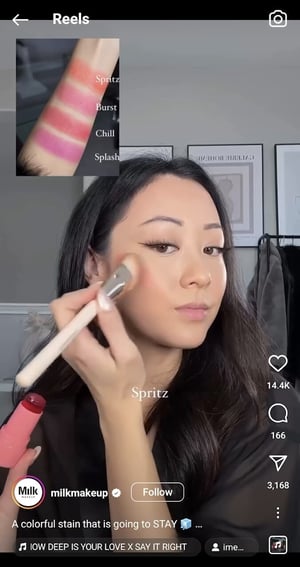
Some popular types of UGC videos on TikTok and Instagram Reels include…
- Unboxings and gifted hauls
- Ingredient and product explainer videos
- New product announcements
- Product-in-action videos
- “Come shopping with me” videos
So, why do UGC videos rank highest among the many types of user-generated content?
For starters: short-form video is more valuable than ever to brands, especially UGC video ads.
In our analysis of nearly 1,000 brands, we found that two-thirds of brands are actively repurposing or plan to repurpose their TikTok UGC into paid ads on this year.
Creator-based Spark Ads outperform non-UGC ads in terms of watch time, engagement rates and conversions. The same applies to Instagram Partnership Ads which feature creators and influencers.
Consider also that UGC videos play a crucial role in ranking in social search. Given that shoppers treat platforms like TikTok as a visual search engine, brands with frequent posts from influencers and UGC creators are more likely to rank for relevant keywords.

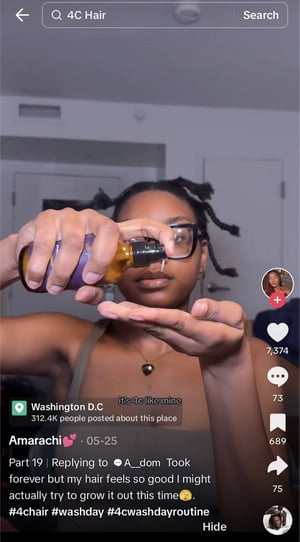
Food for thought: recent user-generated content statistics confirm that Gen Z consumers are 64% more likely to make a purchase based on a video review from a creator they follow. The same rings true of 57% of millennial shoppers. Beyond what we’ve seen firsthand, these stats highlight the importance of UGC videos across the buyer’s journey.
2. UGC Photos
UGC photos are pictures posted by creators that show off someone's firsthand experiences with a product or brand. These snapshots represent a more authentic and engaging way to highlight products in action compared to static photos.

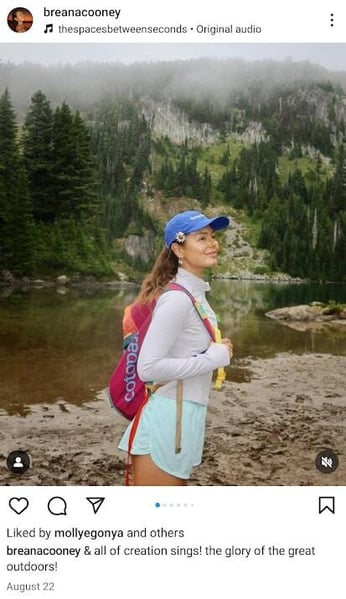
Some effective types of UGC photos for brands across social media and website pages include:
- Before-and-after results photos
- Products “in the wild” photos
- Aesthetic product photos
- Testimonial photos
- User-submitted photos (think: product page UGC galleries)
Like with videos, many brands are moving away from perfectly polished product photos. These don’t typically perform well in terms of social media engagement, especially compared to UGC photos featuring actual people.
However, many industries such as beauty or CPG still publish “aesthetic” photos for their Instagram feeds. Brands can get the best of both worlds by balancing UGC and brand-generated content, supplementing their polished posts with photos featuring actual customers and products in action.
Consider that photos are typically easier for UGC creators to publish depending on your creative requirements. Photos are also more straightforward if you plan on repurposing UGC on your website via galleries or user-submitted photos on product pages (see below).
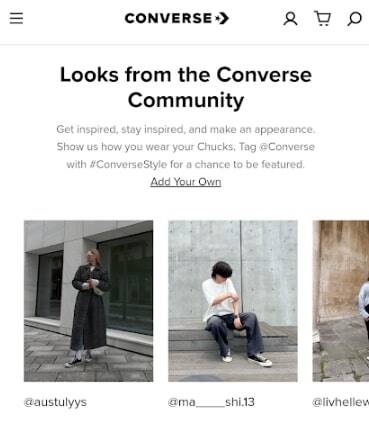
Like photos, photos can also be featured in UGC ads. Both Instagram and TikTok support slideshow-style Carousel ads featuring creators. These types of UGC ads are more common on Instagram where Carousels remain a super popular content format.

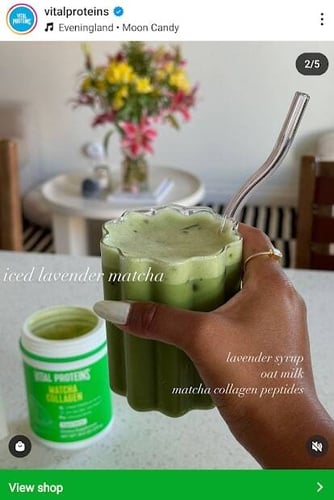
Internally, there’s been a 74% drop in brands requesting static Instagram photos from our network of micro-influencers over the past 18 months as TikToks and Reels boom in popularity.
Although short-form videos are definitely having their moment for marketers, you don’t have to look hard to find photo UGCs via Instagram Feed posts, Stories and Carousels. Note also that both user-generated photos and videos are proven to lift conversion rates, increase average order value and reduce e-commerce returns.
The takeaway? Brands shouldn't treat UGC photos and videos as a matter of either-or because there’s a time and place to promote both (granted you have usage rights).
3. Written Product Reviews
Ratings, reviews and testimonials are still incredibly important for brands despite not being visual.
Whether in the form of testimonials or star ratings, UGC reviews can help build trust and encourage conversions in so many places including:
- Product pages
- Dedicated testimonial pages
- Third-party review sites
- Social media posts
- Homepage testimonial slideshows
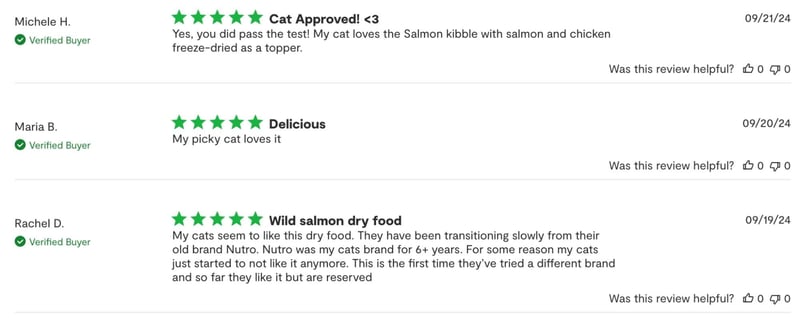
Recent research confirms what we already know: written reviews are a must-have for brands.
The fact that nearly 100% of consumers read reviews before making a purchase isn't a huge surprise.
Honestly. When’s the last time you bought something without looking up reviews first?
Consider that reviews are most powerful when coupled with other types of visual UGC. For example, customer reviews on websites combined with real-life photo create an extra layer of trust. Check out how Nectar Sleep does this on its homepage:
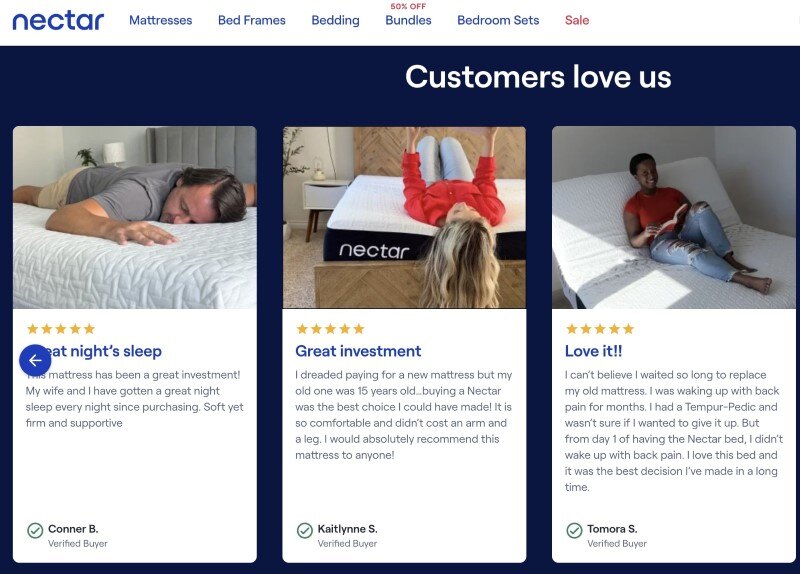
Review content is among the most popular across Google searches and social media. This highlights the value of written reviews even from influencers and UGC creators who can find unique angles and talking points about products in social captions.
Even a sponsored piece of UGC can be super effective for showing off a product’s benefits. Creators’ unique personalities mean that every piece of UGC is different and authentic.
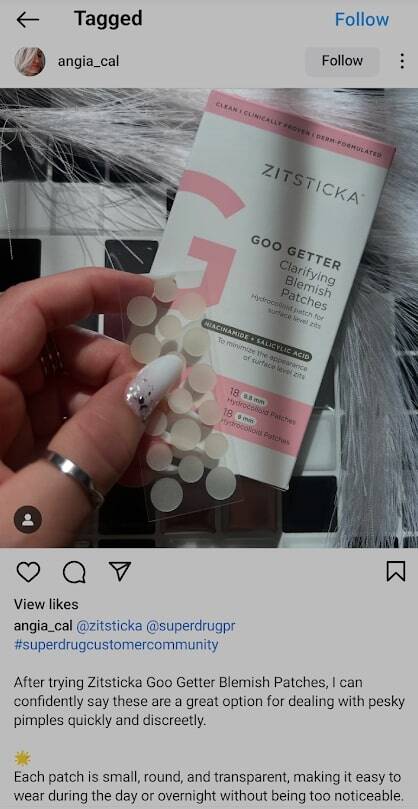
4. Social Media Comments
Social media comments are an underrated type of UGC for brands. These comments include:
- Replies to influencers or UGC creators promoting your product(s)
- Replies to your own posts about your product(s) from creators
- Comments on organic UGC photos and videos featuring your products
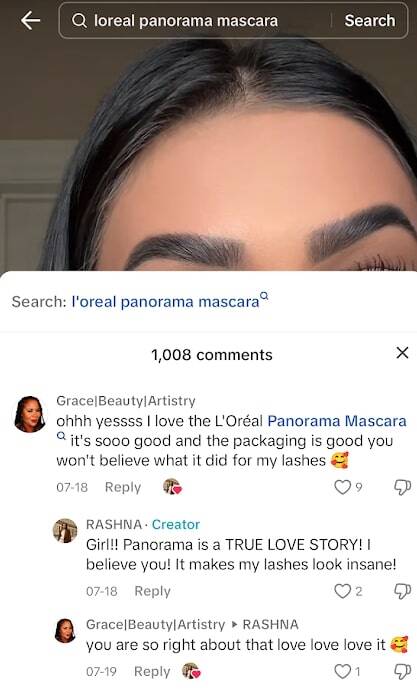
Comments from creators are impactful because they’re so off-the-cuff. That’s because brands can’t really direct how a creator replies to a comment. This creates a sense of trust and authenticity that is one-of-a-kind.
Not to mention that shoppers engaging with comments (or making them) are the most likely to make a purchase. Pay attention to how often commenters will note how they were convinced or felt validated in their product choices based on a creator’s video.
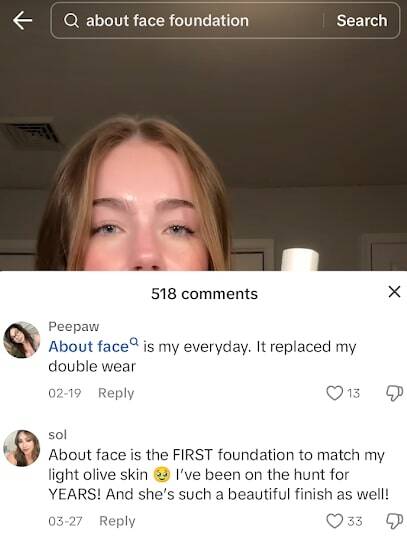
These authentic comments are some of the most powerful social proof a brand can hope for. The key is getting matched with the right creators who promote your products and know how to sing its praises.
How to Get More of the Right Types of UGC
No matter which type of UGC your brand is after, one thing holds true:
Brands need as much user-generated content as they can get. Whether it's visual, written or both.
That's why we're seeing more and more brands scale their user-generated content on TikTok and Reels for the sake of building social proof and standing out.
But getting 100s of posts and reviews from creators on a consistent basis is easier said than done.
That’s where Statusphere's software comes in.
Our UGC platform matches brands with vetted micro-influencers to get rights-ready UGC at scale. Permission and usage rights are built into our platform so you get photos, videos and reviews faster. All ready to repurpose across your key channels including ads and product pages.
We’ve already generated 75,000+ pieces of rights-ready content for 400+ brands.
Want to see how our software works? Get in touch with one of our experts to learn how we can scale your UGC marketing efforts with guaranteed content from vetted creators.
